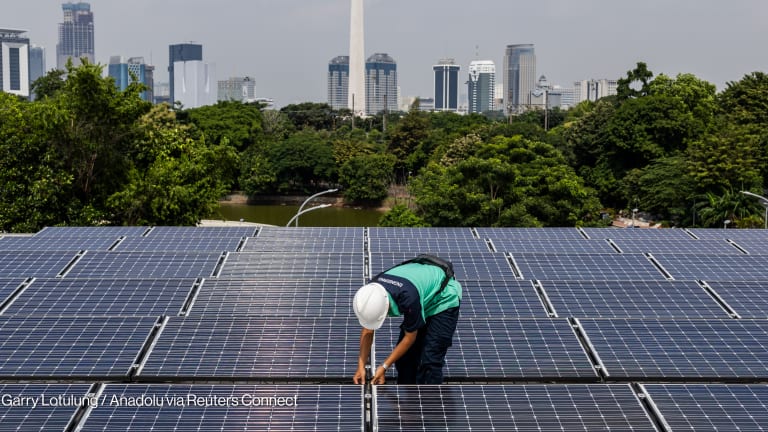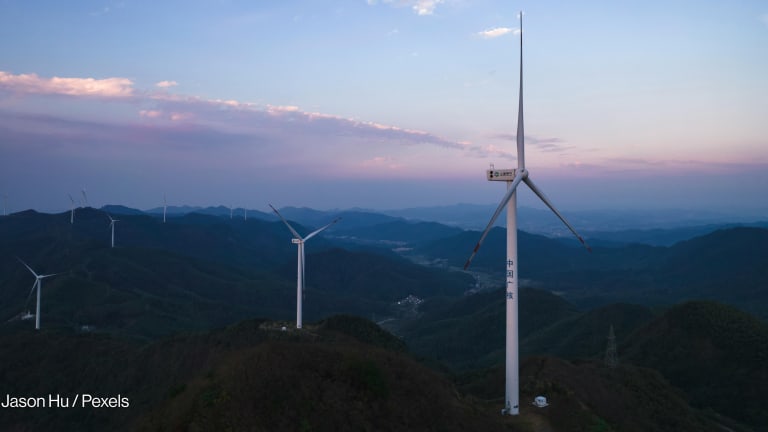
The countdown to both the U.N. General Assembly and Climate Week NYC 2016 has begun. On Sept. 21, U.N. Secretary-General Ban Ki-moon is convening an event for all member states aimed at accelerating the terms of last year’s historic Paris agreement into force.
India is one member state that has already initiated the domestic process for ratifying the global treaty. This comes as little surprise: India is embracing clean energy and Prime Minister Narendra Modi has made energy access and climate change central to his policies since taking over as head of government two years ago.
In his Independence Day speech in 2015, Modi pledged to electrify the 18,500 villages then without electricity within 1,000 days. Clean energy featured prominently in his discussions with U.S. President Barack Obama back in June, and the issue of smart cities and energy infrastructure cropped up in his talks last month with U.K.’s new International Development Secretary Priti Patel.
India is the world’s third largest emitter of carbon, behind China and the U.S., but its emissions are growing much faster than those of any other country. So it’s heartening to see that India is moving forward major renewable energy efforts. According to a recent article in The Economic Times, India's total installed solar capacity has grown by over 80 percent in the past 12 months to reach 8.1 gigawatts.
Modi hopes to go much further than this and increase solar installations to 100 GW by 2022. That’s more than double the present solar capacity of China and Germany, the two biggest solar nations, and a fivefold increase from the previous government’s target of 20 GW. He has also expressed the intent to increase the percentage of electricity sourced from renewable means to about 40 percent of total electric power capacity by 2030.
With an estimated 240 million people currently without access to electricity and many more only with sporadic access, there’s obviously still a very long way to go and off-grid solar is increasingly being viewed as key to bringing sustainable and cost effective energy to the vast and often remote swathes of India that are not yet connected to the grid.
Plans are afoot to build 10,000 minigrids powered by renewable energy in the next five years, and there is common consensus that decentralized solutions are the way forward rather than a one-size-fits-all approach, which is unworkable in a country as huge and diverse as India.
At the recent India Energy Access Summit in Delhi, more than 400 leaders from businesses, financial institutions and governments renewed their commitment to delivering access to sustainable energy in India and helping the country’s transition to a low-carbon economy. So what practical action can they take in order for India to meet its ambitious targets?
1. Support innovative ways to deliver last mile connectivity to underserved populations.
The winner of this year’s Ashden Award for Clean Energy for Women and Girls, Frontier Markets, has a unique distribution model for providing high quality solar lamps and other solar systems to hard-to-reach villages in Rajasthan, using a network of trained women called Solar Sahelis. Harnessing women’s entrepreneurship in this way not only brings clean energy to rural areas but also means that many of them are earning a regular income, often for the first time.
2. Ramp up finance for and investment in clean energy.
Another of this year’s Ashden Award winners, SunFunder, is bridging a crucial funding gap by offering a reliable and continuous source of debt financing to beyond-the-grid solar companies and providing investors with the opportunity to lend to a carefully selected portfolio of solar businesses. This kind of innovative finance model, which absorbs most of the risk, is a solution that works successfully across emerging markets and developing countries and could really benefit India.
3. Collaborate with and learn from other countries.
Businesses in India face regulatory barriers and the government could look to East Africa for experience of reforming the energy access market. The resulting mobile money transformation that’s taken place there has allowed pay as you go systems to take off, which in turn has fueled a surge in access to off-grid clean energy. In India, a lot of the infrastructure is in place already because there are shops and outlets where people can top-up their phones, even in rural areas.
However mobile operators are required to work with banks to provide mobile money services in India and, unlike in Africa, they can’t have their own agents in remote parts of the country who convert mobile money into hard currency.
4. Draw on the expertise of existing national initiatives.
The Ashden India Renewable Energy Collective has devised grid-connected rooftop solar guidelines for the city of Kolkata and is currently working on a compendium of renewable energy technologies for parliamentarians to create more awareness and encourage implementation.
It will clearly take time to create the optimum conditions for large-scale deployment of decentralized renewable energy options in India in ways that spur economic growth and social development while also protecting the environment. But the political will and leadership shown to date in this area augurs well.
Join the Devex community and access more in-depth analysis, breaking news and business advice — and a host of other services — on international development, humanitarian aid and global health.








